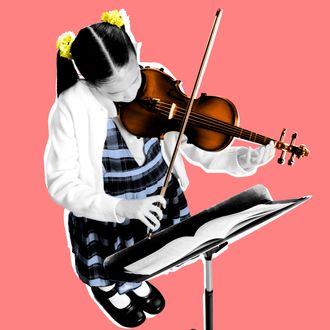
Practice is a hot concept, especially in the age of high-stakes testing and Malcolm Gladwell. Gladwell, you may recall, claimed in his 2008 book Outliers that it takes 10,000 hours of practice time (or therabouts) to achieve mastery of a skill. Since then, the claim has come in for a fair amount of debunking, and a new study in Psychological Science further complicates things. Practice, accordings to its findings, doesn’t do a great job explaining why some people are better than others at a given skill.
The study is a meta-analysis that examined the results of 88 previous studies about practice and performance covering a wide variety of activities, and it found that on the whole “practice accounted for only about 12% of individual differences observed in performance across the various domains,” as the press release puts it.
That said, there’s some nuance to the findings:
However, the domain itself seemed to make a difference. Practice accounted for about 26% of individual differences in performance for games, about 21% of individual differences in music, and about 18% of individual differences in sports. But it only accounted for about 4% of individual differences in education and less than 1% of individual differences in performance in professions.
Furthermore, the findings showed that the effect of practice on performance was weaker when practice and performance were measured in more precise ways, such as using practice time logs and standardized measures of performance.
“There is no doubt that deliberate practice is important, from both a statistical and a theoretical perspective. It is just less important than has been argued,” says Macnamara. “For scientists, the important question now is, what else matters?”
Obviously practice matters, and everyone who has mastered something has spent a lot of time doing so. But for scientists trying to understand this, capturing and understanding other factors is a lot more challenging than simply tallying hours spent in a practice room.




